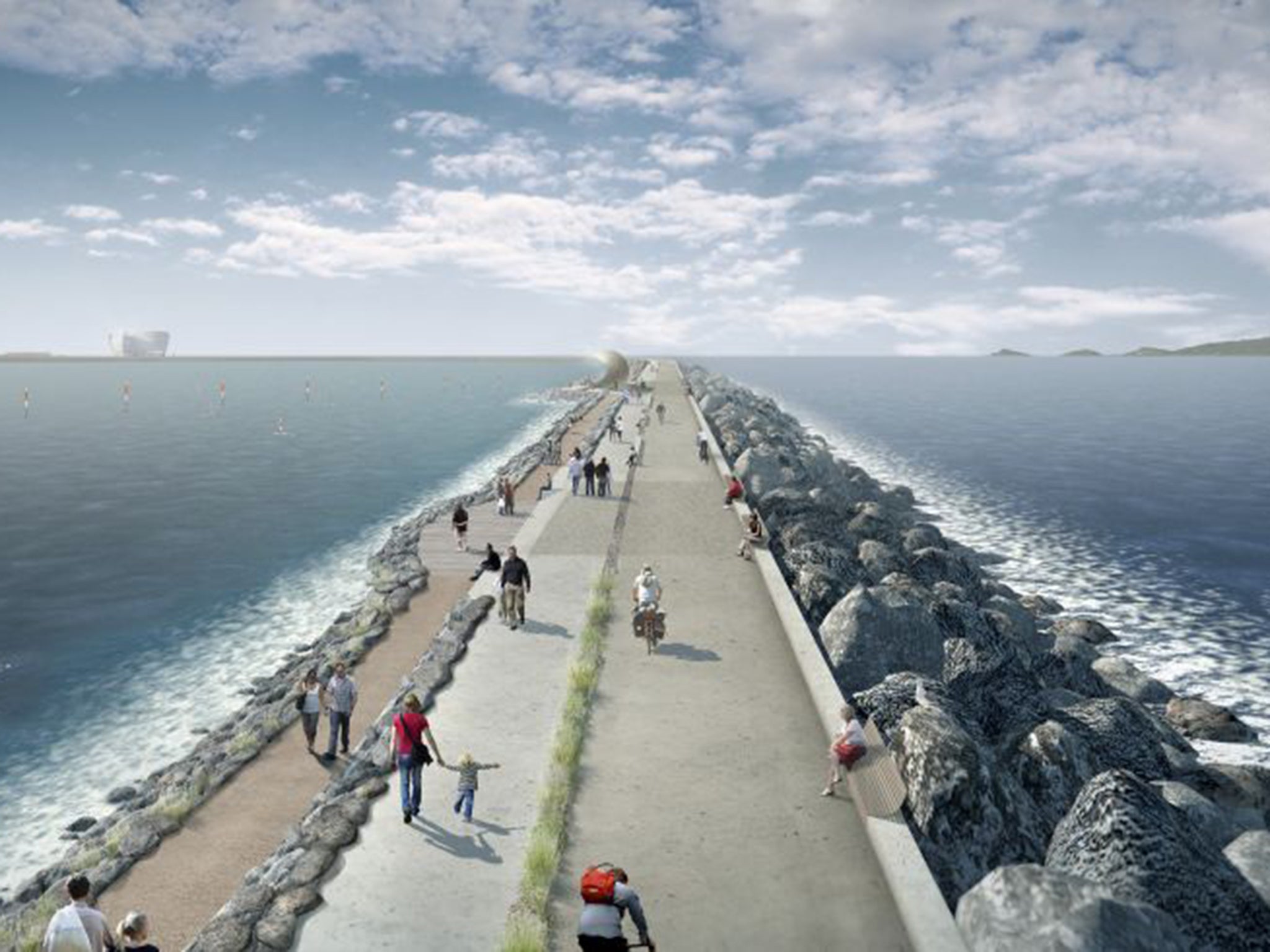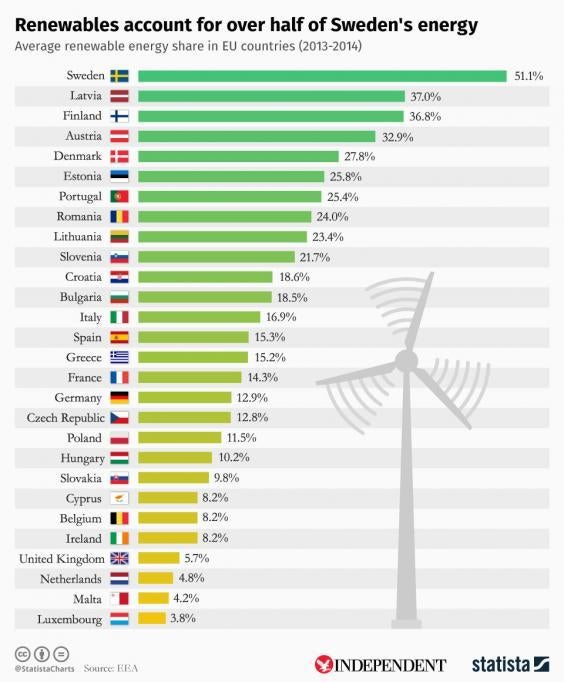Swansea Bay project: Tidal lagoons cheaper than 'almost any other source of power', concludes energy expert
Former Conservative Energy Minister's review concludes tidal lagoons can generate major amounts of 'cost-effective' and green electricity in what is hailed as a 'watershed moment' for the UK

Harnessing the tides could provide major amounts of cheap, reliable and renewable energy, according to the author of a report commissioned by the Government into what could be the world’s first lagoon power plant.
A private firm, Tidal Lagoon Power, is seeking state subsidies to help fund a £1.3bn scheme in Swansea Bay.
It would involve building a large U-shaped wall out into the bay. Turbines in the wall would be driven by the regular rise and fall of the tide, providing electricity for more than 150,000 homes for some 120 years.
In addition to providing a new source of vast amounts of pollution-free electricity, the project is seen as a chance to establish Britain as a world-leader in tidal power.
The report, by former Conservative Energy Minister Charles Hendry, was commissioned by the Government last year to examine whether such lagoon power systems would be value for money and how much electricity could be produced in the UK.
It said that tidal lagoon power technology could have a “cost-effective role” in generating electricity in the UK, as it would be cheaper than offshore wind and significantly less expensive than nuclear over the first 60 years of its life.
And it was “beyond question” that the local economy would benefit, the report concluded
Speaking to BBC Radio 4’s Today programme, Mr Hendry said: “We know it absolutely works. One of the great advantages is it is completely predictable for all time to come.
“We know exactly when the spring tides and neap tides are going to be every single day for the rest of time and so, in terms of meeting security of supply, lagoons can play an important role.”
Tidal Lagoon Power has said the scheme would require about the same level of support from the state as nuclear power.
But Mr Hendry said: “If you look at it over the cost of that 120 years [its expected life-time], then you get a very much lower figure than almost any other source of power generation.”
Currently, building any kind of power plant in the UK requires some form of subsidy from the state.
Mark Shorrock, of Tidal Lagoon Power, described the report as a “watershed moment for British energy, British manufacturing, British productivity and our coastal communities”.
“Home-grown power from the tides, starting at Swansea Bay, is something we can all agree on: communities and investors, conservationists and industrialists, politicians of all persuasions and now an independent Government review, all singing from the same hymn sheet,” he said.
“Swansea Bay Tidal Lagoon is a vision of how Great Britain can replace part of our ageing power station fleet with low cost, reliable power that also revitalises our industrial heartlands and coastal communities.
“When we pay our electricity bills, we are mostly supporting other countries’ energy industries and other countries’ workers. It doesn’t have to be that way. Tidal lagoons will generate electrons that work for Britain and bring down bills.”
Other experts broadly backed the report’s conclusion.
Dr Robert Gross, director of policy at the Energy Futures Lab, Imperial College London, said: “Tidal lagoons are expensive to build but could provide electricity almost indefinitely.
“If they can be financed cheaply over the long term their electricity works out quite cheap too.
“But UK governments have not been very good at thinking long term. Private investors welcome secure and long term investments in energy infrastructure but only if, and it's a big if, government changes its approach and really thinks long term.”
Dr Simon Harrison, chair of the Institution of Engineering and Technology’s energy panel, said: “Although it may seem relatively expensive at first, it’s important to remember that this is a pathfinder project which, when applied at greater scale in other locations, promises long term cost competitive and predictable renewable energy, and a potentially exportable technology.

“This has the potential to make a valuable contribution to the electricity system as we move more to a smart system where consumers will be able to respond to price signals by adjusting the timing of some of their demand, such as when they charge their electric car.
“Tidal lagoons are large and complex construction projects, but if Swansea Bay performs well we might expect to see large scale contributions to the UK’s electricity from tidal sources by the late 2020s or 2030s.”
And Dr Athanasios Angeloudis, also of Imperial College London, said the UK was "blessed with some of the largest tidal energy resources in the world".
"This outcome should be seen as a landmark step towards making the first significant contribution to the national electricity mix from this sustainable energy source," he said.
A recent study by Aurora Energy Research found that tidal power schemes could provide more than 10 per cent of UK’s total power generation by 2030, significantly reducing greenhouse gas emissions from fossil fuels.
Greenpeace UK’s chief scientist, Dr Doug Parr, urged the UK Government to “get on with it”.
The Swansea Bay project was a chance to “lead the world in providing a new, renewable innovation to meet our clean energy needs”, he said.
“If Swansea is successful it could prove the investment case for further major projects that could potentially generate a significant chunk of the UK’s electricity needs, and help towards meeting our carbon targets, whilst creating thousands of new infrastructure jobs too,” Dr Parr added.
Join our commenting forum
Join thought-provoking conversations, follow other Independent readers and see their replies
Comments
Bookmark popover
Removed from bookmarks